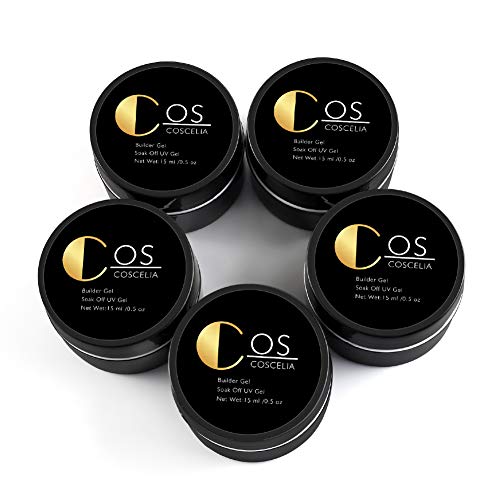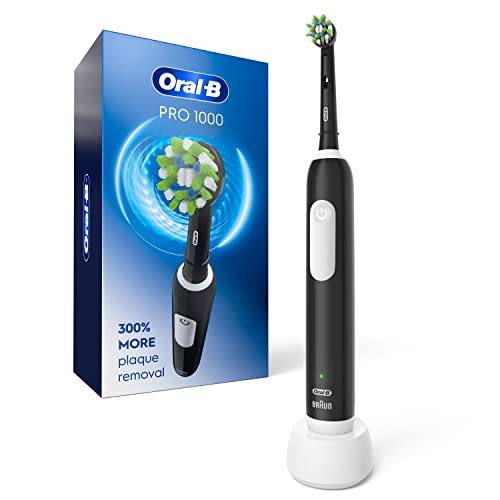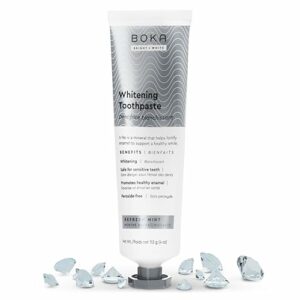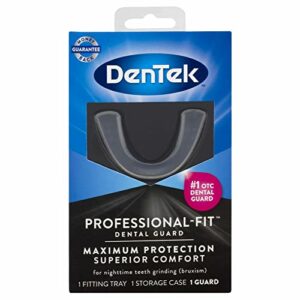In this step-by-step guide, we will explore the various methods and practices to help maintain strong enamel. Enamel, the protective outer layer of our teeth, is essential for maintaining dental health. However, everyday activities such as consuming acidic foods and beverages, poor oral hygiene, and teeth grinding can weaken the enamel over time. This guide aims to provide you with practical tips and techniques to strengthen your enamel and protect your teeth from damage. By following these steps, you can promote good oral health and ensure your smile stays bright and healthy for years to come.
Protect and strengthen your enamel today
Understanding Enamel
To understand the importance of enamel and maintain its strength, we must first recognize that enamel is the protective outer layer of our teeth. It acts as a shield, safeguarding the sensitive inner layers from damage caused by bacteria, acids, and other harmful substances. To maintain its strength, it is crucial to practice good oral hygiene, such as brushing twice a day with a fluoride toothpaste, flossing daily, and limiting the consumption of sugary and acidic foods and drinks. Regular dental check-ups and professional cleanings are also essential to identify any issues early on and prevent further enamel erosion.
Brushing Technique
To prevent enamel damage while brushing your teeth, start by moistening your toothbrush with water. Then, apply a pea-sized amount of toothpaste to the bristles. Hold the toothbrush at a 45-degree angle to your gum line and use gentle, circular motions to clean each tooth. Be sure to brush all surfaces of your teeth, including the front, back, and chewing surfaces. Remember to brush for at least two minutes, twice a day, and replace your toothbrush every three to four months.
Choosing the Right Toothpaste
Discovering which toothpaste ingredients strengthen enamel is crucial when making a knowledgeable decision. Start by examining the packaging or product description for key components like fluoride, calcium, or hydroxyapatite. These ingredients play a vital role in strengthening enamel, ensuring you choose the right toothpaste for a healthier smile.
Flossing Regularly
To understand the role of flossing in maintaining strong enamel, start by visualizing the spaces between your teeth where food particles and plaque can accumulate. Grab a piece of dental floss and gently guide it between each tooth, curving it around the base of each tooth to remove any debris. Repeat this process for all your teeth, ensuring you floss both sides of every tooth. Make flossing a daily habit, ideally after brushing your teeth, to keep your enamel strong and promote overall oral health.
Limiting Acidic Foods and Drinks
To reduce the consumption of acidic foods and drinks and protect your enamel, follow these steps:
- Learn about the harmful effects of acidic foods and drinks on enamel erosion.
- Identify acidic foods and drinks by checking their pH levels or researching online resources.
- Limit the intake of highly acidic foods and drinks, such as citrus fruits, sodas, and vinegar.
- Opt for less acidic alternatives, such as water, milk, and low-acid fruits.
- Rinse your mouth with water after consuming acidic foods or drinks to help neutralize the acid.
- Use a straw to minimize tooth contact when consuming acidic beverages.
- Wait at least 30 minutes after consuming acidic foods or drinks before brushing your teeth.
- Maintain good oral hygiene practices, including brushing twice a day with fluoride toothpaste and flossing daily.
- Visit your dentist regularly for check-ups and professional cleanings to monitor your enamel health.
By following these steps, you can reduce the impact of acidic foods and drinks on your enamel and maintain a healthy smile.
Using Fluoride Mouthwash
Discover the benefits of fluoride mouthwash in strengthening enamel and include it in your oral hygiene routine. Here’s how you can effectively incorporate fluoride mouthwash into your daily dental care:
- Choose the right fluoride mouthwash: Look for a mouthwash that contains fluoride, as this mineral plays a crucial role in strengthening tooth enamel and preventing tooth decay.
- Pour the recommended amount: Carefully measure the recommended amount of fluoride mouthwash into a cup. This will typically be around 20ml, but be sure to check the instructions on the bottle.
- Rinse and swish: Take a mouthful of the fluoride mouthwash and swish it around your mouth for about 30 seconds to 1 minute. Make sure to cover all areas of your mouth, including your teeth and gums.
- Spit out the mouthwash: After swishing, spit out the mouthwash into the sink. Avoid swallowing the mouthwash as it is not meant to be ingested.
- Avoid eating or drinking: Refrain from eating or drinking anything for at least 30 minutes after using fluoride mouthwash. This will allow the fluoride to fully penetrate and strengthen your tooth enamel.
- Use fluoride mouthwash at the right time: Incorporate fluoride mouthwash into your oral hygiene routine by using it once or twice a day, preferably after brushing your teeth. By using it after brushing, you can maximize the benefits of fluoride in strengthening your enamel.
Remember, fluoride mouthwash is not a substitute for regular brushing and flossing. It should be used as an additional step to enhance your oral care routine. By incorporating fluoride mouthwash into your daily routine, you can help protect your teeth and keep them strong and healthy.
Avoiding Teeth Grinding
Identify the causes and effects of teeth grinding by paying attention to possible triggers such as stress, anxiety, or misaligned teeth. Observe any symptoms like jaw pain, headaches, or worn-down teeth. Explore solutions to protect your enamel by wearing a custom mouthguard during sleep, practicing stress management techniques, and seeking dental treatment for misalignment or bite issues. Remember, taking proactive steps can help alleviate the negative effects of teeth grinding and safeguard your dental health.
Regular Dental Check-ups
To understand the importance of professional dental visits and how they contribute to enamel maintenance, it is crucial that you prioritize regular dental check-ups. By scheduling these appointments, you allow dental professionals to carefully examine your teeth and gums, identifying any potential issues early on. Regular dental check-ups also include professional cleaning, which helps to remove plaque and tartar build-up, preventing enamel erosion and maintaining optimal oral health.
Maintaining a Healthy Diet
To maintain a healthy diet and promote enamel health, it is important to understand the role of nutrition in our dental health. Incorporating enamel-strengthening foods into our diet can help protect our teeth from damage and decay. Here are some key points to keep in mind:
- Consume calcium-rich foods: Calcium is essential for strong and healthy teeth. Include dairy products like milk, cheese, and yogurt in your daily meals. Other sources of calcium include leafy green vegetables, tofu, and almonds.
- Eat foods high in phosphorus: Phosphorus works in conjunction with calcium to promote enamel health. Incorporate foods like lean meats, seafood, nuts, and eggs into your diet to ensure an adequate intake of this mineral.
- Increase vitamin D intake: Vitamin D aids in calcium absorption, which is crucial for maintaining enamel strength. Get your daily dose of this vitamin from sources such as fatty fish, fortified dairy products, and exposure to sunlight.
- Avoid acidic and sugary foods: Acidic and sugary foods can erode enamel and contribute to tooth decay. Limit your consumption of foods and drinks such as sodas, fruit juices, candies, and acidic fruits like citrus.
- Stay hydrated: Drinking plenty of water helps maintain saliva production, which is essential for neutralizing acids in the mouth and protecting enamel.
By incorporating these enamel-strengthening foods into your diet and making wise nutritional choices, you can support the health of your teeth and maintain a beautiful smile.
Protecting Your Pearly Whites
In conclusion, maintaining strong enamel is crucial for maintaining optimal oral health. Throughout this guide, we have emphasized the importance of practicing good oral hygiene, avoiding acidic foods and drinks, and seeking professional dental care regularly. By following these tips and incorporating them into our daily routines, we can protect our enamel from erosion and keep our teeth healthy and strong. Remember, our enamel serves as a protective shield for our teeth, and by taking care of it, we are taking care of our overall oral health. Let’s commit to consistent enamel maintenance and enjoy a lifetime of healthy smiles.
Essential Equipment Needed
Protect Your Smile
Simple Steps to Safeguard and Strengthen Your Enamel
- Use a fluoride toothpaste: Brush your teeth twice a day with a fluoride toothpaste. Fluoride helps strengthen tooth enamel by replenishing minerals and protecting against acid attacks
- Limit acidic food and drinks: Reduce your consumption of acidic foods and beverages such as citrus fruits, soda, and vinegar-based dressings. These substances can erode tooth enamel over time. If you do consume them, rinse your mouth with water afterward
- Avoid excessive grinding or clenching: Excessive grinding or clenching of the teeth can wear down enamel. If you tend to grind your teeth, consider using a mouthguard at night to protect your teeth from damage
- Maintain good oral hygiene: In addition to brushing with fluoride toothpaste, floss daily and visit your dentist regularly for professional cleanings and check-ups. Good oral hygiene practices help prevent bacteria buildup, which can lead to enamel erosion
- Consider dental sealants: Dental sealants are thin, protective coatings that are applied to the chewing surfaces of the back teeth. They can provide an extra layer of defense against decay and help protect enamel from acids and plaque
- Remember, these tips are just a starting point. It’s always best to consult with a dental professional for personalized advice tailored to your specific needs























